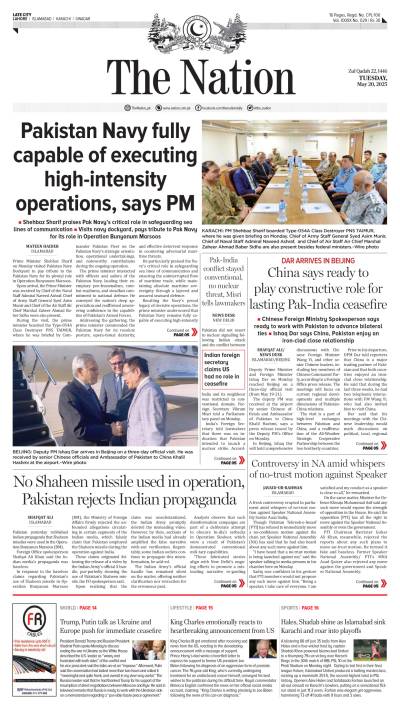In moments of existential threat, a nation turns to its armed forces for leadership, courage, and a steady example. Faced with Indian aggression, Pakistan not only stood its ground — it did so with skill, resolve, and bravery. For this, we must honour those whose leadership made such resilience possible.
The elevation of Chief of Army Staff General Asim Munir to the rank of Field Marshal for his command during Operation Bunyanum Marsoos and Marka-e-Haq — is both a symbolic recognition and a strategic choice. Likewise, the extension of Air Chief Marshal Zaheer Ahmed Babur Sidhu’s service beyond his term signals a desire for continuity in the military leadership and doctrine that helped secure victory. The only other recipient of the five-star rank was General Ayub Khan in 1959, making this a rare and weighty distinction. Yet, as the saying goes, this is no time to rest on our laurels.
While the immediate threat has been repelled, India’s post-war posture has revealed an enduring hostility. Fuelled by Hindu nationalist ideology, its political and media classes exhibit a toxic mix of resentment and belligerence. The hawks who flourish in such climates are not defeated — merely regrouping. And history has shown that the India-Pakistan rivalry is no ordinary dispute; it is a deep-rooted, existential conflict that demands a clear and unflinching response.
The strategic stakes remain high. The rivers Pakistan depends on originate in Indian-controlled territory. Kashmir — a Muslim-majority region and the symbolic heart of what should have been a united Pakistan — remains under Indian occupation. Until these questions are resolved, Pakistan’s military leadership must stay vigilant and undistracted, focused on eliminating threats both across and within our borders, particularly in the restive western regions.
This moment should not be treated as a conclusion, but as a solemn declaration of intent — a signal of enduring resolve to safeguard Pakistan’s sovereignty and future. The path ahead will require unity, clarity, and strength.





